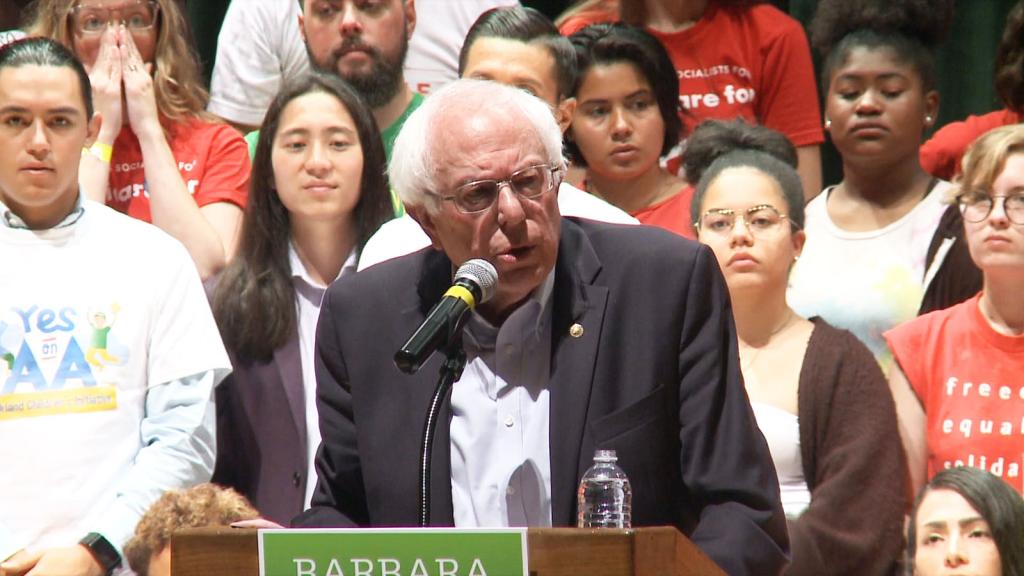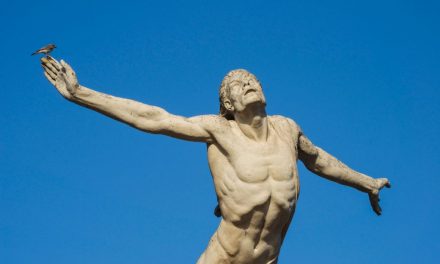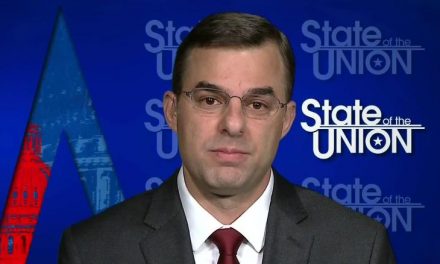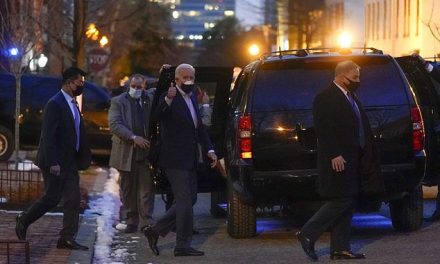Image Credits: CSPAN.
Time has a way of determining the legacy of failed presidential campaigns, and it often winds up being quite different from what people expected. To give two examples, Barry Goldwater was seen as a disastrous nominee whose defeat and negative coattails led to so much Democratic power that Lyndon Johnson was able to sign the Voting Rights Act and push through his Great Society agenda. But, in retrospect, Goldwater began the conservative takeover of the Republican Party and began a process that led directly to the Reagan Revolution sixteen years later. Many believed that the candidacy of George McGovern paved the way for Reagan by moving the New Deal party away from the white working class and focusing too much on divisive and unpopular social issues. But the things McGovern campaigned on are no longer seen as radical or out of step. Democratic strategists remain wary of moving too far to the left in a presidential campaign, but they don’t refute McGovern’s principles.
In truth, the legacies of both men were shaped by forces too big for them to control. The realignment of American politics, with the South moving from solidly Democratic to solidly Republican, was probably going to happen regardless of who the parties nominated. Likewise, it’s unlikely that Bernie Sanders will prove to be a key causal factor in the leftward movement of American politics in the next couple of decades.
John Harris of Politico notes that McGovern’s campaign spawned a new generation of leaders, like Bill and Hillary Clinton, and Senator Gary Hart. But any major party presidential campaign would likely have that effect. The people who ran Al Gore’s campaign remain fixtures in American politics. The only time this doesn’t happen is when another campaign comes along from a significantly different wing of a party, and actually wins the presidency. The Bush family restoration of 2000 pushed out Bob Dole’s team, for example, and the eight-year Obama presidency swamped any specific contributions from veterans of John Kerry’s candidacy.
Many of the people who worked on Bernie Sanders’ campaign will stay in politics and play a major role in the future, but their influence will be dictated by age and circumstance more than by any impetus provided by the senator from Vermont. If he inspired some people to a lifetime commitment to politics, that will indeed be part of his lasting legacy, but I think Gary Hart was more on point when he said this:
Hart, who in 1984 mobilized a younger generation of voters while losing the nomination, also urged Sanders to recognize that the coronavirus pandemic has changed politics in ways that render some ideological debates obsolete. Perhaps in January, the difference between Biden’s cautious progressivism and Sanders’ radical version was something worth arguing about. Now, Hart said, “The plague has changed everything.” With trillions being spent in what threatens to be this generation’s Great Depression, “Joe Biden may end up being Bernie Sanders squared just by circumstance.”
Large events, like the Vietnam War, the Iranian Hostage Crisis, the fall of the Soviet Union, the 9/11 attacks, the Great Recessions, and the Covid-19 outbreak, have more power to reshape legacies than people recognize. Meanwhile, historic forces, like technological, ecological, or demographic change can shape new political coalitions in ways that cause us to change our assessments of our political leaders.
If Joe Biden wins the presidency and ushers in a new era of extremely big government, it will be less because Bernie Sanders was his strongest primary opponent than because the coronavirus pandemic demanded a huge federal response and the people recognized this and supported it. If Joe Biden loses the election and the country suffers through another four years of Trump, this won’t be the fault of Bernie Sanders, and there’s no assurance his candidacy would have fared any better. In fact, as many people will blame Sanders–for pushing the party too far left, or not delivering his voters to Biden–as will argue that he would have been victorious.
What he already know is that we need big government now in a way that was hard to envision at the outset of the campaign. We know that the younger generations were clamoring for this even before the pandemic hit. Sanders-style politics is going to be more mainstream in the future.
But it was largely going to be this way anyway, simply because the millennial and Generation Z cohorts are more diverse and more left-leaning that any preceding American generations. Now, with millions out of work and the federal government failing on every front to contain a major health care crisis, the people will want the next generation to step up.
Sanders looks a bit prescient at the moment. He’s more likely to look prescient in retrospect. Yet, I think history would have turned out roughly the same even if he had never launched his second candidacy for the president.
Maybe people will look back and say that Sanders was the ideological forebear of the modern Democratic Party. Maybe they’ll look back and say always “What if?”
Whatever happens, I think everybody’s legacy will look better if Trump loses, even yours and mine.







